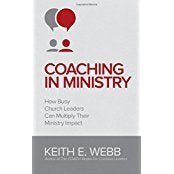
Pursuing Balanced Ministry
 Pursuing balanced ministry in the United States has become increasingly complex in the last 50 years. There was a time when being a good pastor meant preaching on Sunday, visiting the sick, and marrying and burying people. Now it seems the demands placed on the pastor have increased to the point where it’s unrealistic for one person to be able to be good at every area of ministry.
Pursuing balanced ministry in the United States has become increasingly complex in the last 50 years. There was a time when being a good pastor meant preaching on Sunday, visiting the sick, and marrying and burying people. Now it seems the demands placed on the pastor have increased to the point where it’s unrealistic for one person to be able to be good at every area of ministry.
How then shall we evaluate our ministry? Clearly we will have strengths and weakness in various areas based on our giftedness and passion for ministry. If we can honestly look at where we are strong and where we are weak, we can then determine how to proceed in pursuing balanced ministry.
In our areas of strength, we can consider how to capitalize on what we do well. We can also find ways to use our strengths to bolster our weak areas. For example a pastor may be strong in the ability to mobilize others in their giftedness but not as strong in the ability to relate to the unchurched. The pastor can then think strategically about how to mobilize other to reach out to the unchurched. In this way “the whole body, being fitted and held together by that which every joint supplies, according to the proper working of each individual part, causes the growth of the body for the building up of itself in love.” (Eph 4:16).
In addition we can consider how to pass on our strengths to others through coaching, mentoring and training. This is part of our stewardship of the gifts God has given us.
By the same token, by taking an honest look at where we lack, we can partner with others who find that area to be an area of strength. In this way the church won’t suffer from the lack of one person.
Perhaps as we prayerfully consider our areas of weakness, we will hear God’s invitation to explore and grow in that area. Finding a mentor or coach will spur growth through accountability and encouragement.
Key Ministry Competencies
Bob Logan, a coach of church planters and Chuck Ridley, a psychology professor now at Indiana University and formerly at Fuller Seminary teamed up to determine what ministry competencies were needed for a church planter to succeed in the field. Through intensive research, they determined there were thirteen essential competencies needed. These are now used regularly in the church planting field to qualify church planters. They are:
- Has a visionizing capacity
- Intrinsically motivated
- Ability to create ownership of ministry
- Ability to relate to the unchurched
- Spousal cooperation
- Effective relationship building
- Committed to church growth
- Responsiveness to the community
- Utilization of the giftedness of others
- Flexibility and adaptability
- Building a cohesive church body
- Resilience
- Exercising faith
While these competencies were developed for church planters, they are certainly applicable to pastoral ministry in any context. No one will be strong in every area. But God has placed us in a body of believers with whom we can team up in order to display the whole of Christ’s character and heart to the world around us.
If you would like to evaluate your competencies, download the evaluation  worksheet. For each of the statements, consider how you have operated in the past. “Past behavior is the best predictor of future behavior.” Evaluate honestly where you are now rather than where you would like to be. You may also want to give the worksheet to other trusted individuals who could give you honest feedback with love.
worksheet. For each of the statements, consider how you have operated in the past. “Past behavior is the best predictor of future behavior.” Evaluate honestly where you are now rather than where you would like to be. You may also want to give the worksheet to other trusted individuals who could give you honest feedback with love.
Once you have determined your strengths and weaknesses consider whether a coach could help you move to the next level of effectiveness in pursuing balanced ministry.
Jeannette Buller Slater has been involved in coaching since 1984. She offers executive coaching for pastors and church planters through www.CoachingPastors.com
